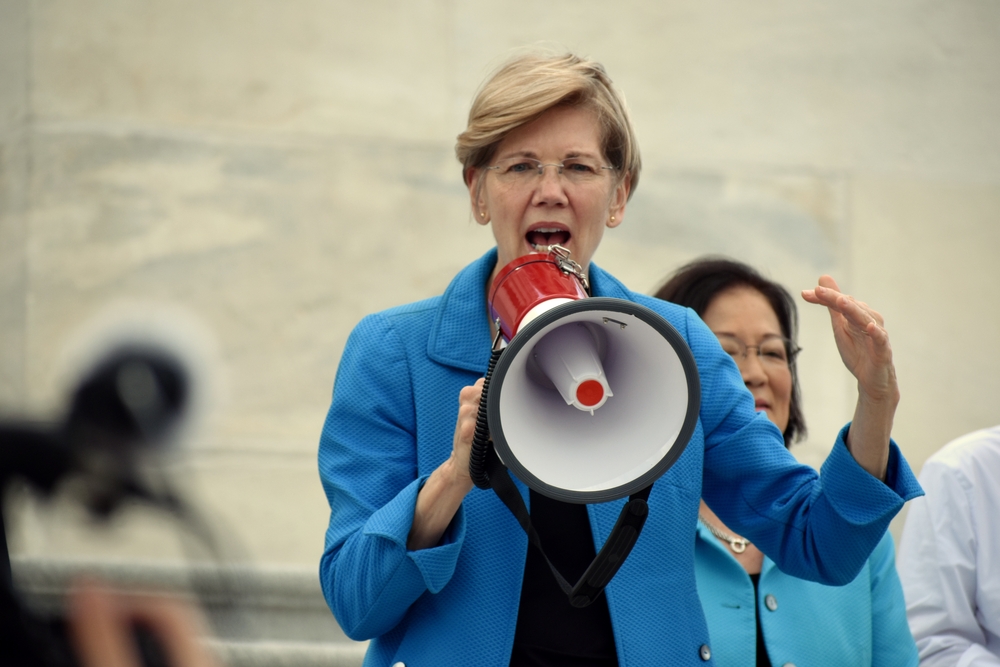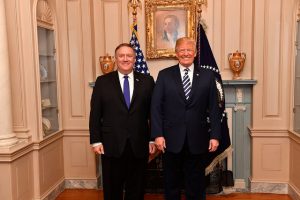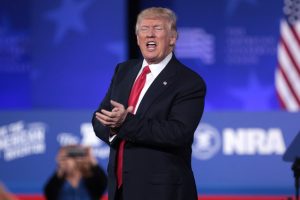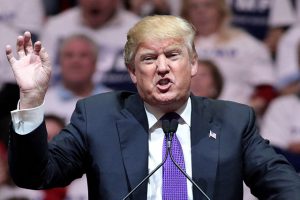By Paul Pillar
The contest for the Democratic presidential nomination has had the unreal quality of not focusing on what the eventual winner will have the power to do, and will be most pressed to do, as president. Instead the campaign has been more of an abstract discussion of certain high-profile policy issues—abstract not in the sense that such policies lack material consequences or that the candidates (especially Elizabeth “I have a plan for that” Warren) lack specific proposals, but rather in the sense that they are not what presidents have the power to enact on their own.
The enormous attention to health care is probably the outstanding case in point. Of course health care is an important national concern, but acts of Congress, not presidential fiats, will determine the shape of the health care system in the United States. Presidents can propose, but Congress disposes (and Warren and other candidates who currently are members of Congress can introduce bills on health care right now). Whatever any president proposes on this subject is likely to change significantly before Congress finishes disposing of it, even if the president’s party has majorities in both chambers.
Warren as president would have more immediate (and beneficial) impact, with, for example, her stated intention to end the selling of ambassadorships and to take other steps, several of which do not require legislation, to restore the U.S. Foreign Service after the severe damage that Trump has inflicted on it. The other presidential candidates would make the campaign debate more useful by taking some of the enormous time spent on health care plans and speaking about what they would do to accomplish such restoration.
This is still a race for a party nomination, and it is well known how political battles at this stage typically focus narrowly on what are perceived to be the parochial concerns of the party’s base and take on a different character in the general election. But positions taken now can impose constraints later on. Moreover, Democratic primary voters ought to be learning about what difference the various contenders would make in executing the powers of the presidency, not just in who has the most attractive ideas about policies that cannot be imposed by fiat.
Foreign policy is where more attention and debate are most required, and not just because foreign policy nearly always gets inadequate attention in political campaigns. It also is where a president has the most power to make a difference even without getting Congress to go along with the president’s program. This fact is reflected in how many presidents late in their presidencies, especially in second terms, have turned more of their attention to foreign relations as an area where they can make a difference after experiencing frustration in trying to get their domestic programs through Congress.
Many issues in foreign policy could profitably be discussed more than they are now, but priority should be given to those subjects on which Trump has caused the most damage. Candidates should explain how they intend to repair that damage, not just what their policies would be if they somehow could be written on a clean slate. The slate on which the next administration’s foreign policy will be written starts out very dirty. Coming after Trump will be a major, task-defining fact about the next administration’s foreign policy challenges.
The next president will, for example, have to deal with the enormous loss of U.S. credibility during the past three years, which has stemmed in large part from Trump’s reneging on or withdrawing from agreements such as the Paris accord on climate change, arms control accords with Russia, and the Joint Comprehensive Plan of Action (JCPOA), which restricted Iran’s nuclear program. The next administration will have to address the credibility problem generally but also be in damage-repair mode in addressing the individual issues. On the paramount issue of climate change, for example, it is not enough to do what would have been done if the United States had remained part of the international consensus these past few years. The new president will have to figure out ways to make up for lost time and abandoned U.S. leadership. On relations with Iran, several Democratic candidates have, to their credit, announced their intention to return to compliance with the JCPOA. But managing that relationship has been made more difficult by more lost time, by the added tension and hostility that Trump’s policies have caused, and by the Trump administration’s efforts to make some of the measures through which it has waged economic warfare difficult to reverse.
Trump’s actions have made future diplomatic progress more difficult in other ways. he Israeli-Palestinian conflict is an outstanding example, and another one that raises issues of reversibility. Will the next administration rescind Trump’s going all-in with the Israeli government on the issue of Jerusalem, with the associated move of the U.S. Embassy there? Rescission might be difficult for several reasons, even though Trump’s actions on this subject poisoned the possibilities of a two-state solution and resolution of the conflict.
The heavy damage to U.S. relations with the European allies represents another especially dirty part of the slate that the next administration will have to tend to. Brexit will be an added complication in addressing this problem and in a sense is another part of Trump’s legacy given the way he has cheered on the Brexiteers, contrary to U.S. interests.
Issues examined by the current impeachment proceeding represent more damage-repair needs. Ukraine is a large and important country, and constructing a U.S. policy that adequately reflects Ukraine’s delicate situation between East and West would be a challenge in any event. Now it has been made more difficult by Trump and Rudy Giuliani’s setting back of Ukraine’s efforts to stamp out corruption and subordinating an aid relationship to dirt-digging for domestic political reasons. What are the Democratic candidates’ specific ideas for repairing this damage, and for fitting the repairs into a sensible policy toward not just Ukraine but also Russia?
To emphasize these foreign policy challenges is not to diminish the amount of Trump-inflicted damage that extends to domestic matters as well, and the need for the next administration to repair that damage as well. Perhaps the greatest over-arching damage, spanning both the domestic and foreign sides, is that the nation seems to have become inured to wrongdoing because of the sheer volume of it, with attention to each offense quickly fading as it is succeeded by a new offense or attention-hogging presidential outburst. What will the next president do to restore a sense of national outrage over wrongdoing whenever it occurs, be it blatant self-dealing, corruption of U.S. foreign relations, or something else?
Such problems may not have as much resonance in Iowa caucuses as the cost of health care, but they have a lot more to do with who will make the best president.





